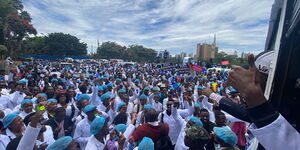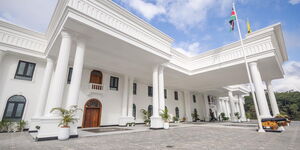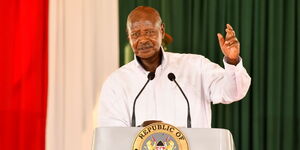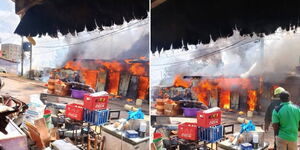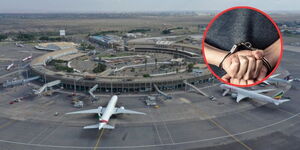Kenya has been ranked as the second worst country in Africa for tourism services and infrastructure, despite a minor improvement in the overall global ranking, according to the latest Travel and Tourism Development Index (TTDI) released by the World Economic Forum on Tuesday, May 21.
The TTDI, which assesses the events of 2023 and early 2024, assigned Kenya a meagre score of 1.25 out of 7 for its tourism services and infrastructure. This score places Kenya well below regional neighbours Rwanda and Tanzania, both of which scored 1.41, while Botswana led the continent with a score of 3.12. The maximum possible score for any sector is 7.
The index evaluates factors and policies enabling the sustainable and resilient development of the travel and tourism sector, which in turn contributes to national development. The TTDI serves as a benchmark for stakeholders to gauge progress, inform decisions and policies, and promote sustainable growth.
Despite the poor overall score in infrastructure, Kenya’s ground and port infrastructure (3.23) and air transport infrastructure (3.21) are among the top ten in Africa. However, this relatively strong performance is overshadowed by broader structural issues.
The report suggests inefficiencies at the Jomo Kenyatta International Airport (JKIA), including recent blackouts and leaking roofs, have contributed significantly to Kenya’s low infrastructure score.
The operationalisation of the Nairobi Expressway in 2022, while a positive development, has not been sufficient to offset the negative aspects impacting the score. During recent heavy rains, JKIA’s Terminal 1C was disrupted by a leaking roof, highlighting the ongoing infrastructure challenges.
In addition to infrastructure woes, Kenya’s scores for cultural resources and non-leisure resources were disappointingly low, at 1.66 and 1.99 respectively. However, the country’s natural resources were rated more favourably, with a score of 3.76, ranking third after South Africa and Tanzania.
On a more positive note, Kenya performed well in areas related to sustainability. Environmental sustainability scored 4.53, while the socioeconomic impact of travel and tourism was the highest on the continent at 6.05. Additionally, the sustainability of tourism and travel demand scored 4.89.
Overall, Kenya’s mean score has shown a slight upward trend, moving from 3.60 in 2019 to 3.68 in the current report. This represents a one-place gain in the global ranking.
South Africa leads the region in the TTDI rankings at 55th globally, followed by Mauritius (57th), Egypt (61st), and Botswana (75th), all of which are ahead of Kenya.
The report underscores the significant potential of the travel and tourism sector to drive socioeconomic prosperity.
Despite these gains, the report highlights substantial challenges that must be addressed to foster tourism growth in Africa. It calls for policymakers and tourism stakeholders to enhance business environments, improve health and hygiene conditions, develop higher-quality human resources, and advance ICT infrastructure.
Emphasising inclusive working conditions, workers’ rights and education can bolster the region’s labour force competitiveness and resilience. Additionally, addressing health, safety, and security concerns is vital to attracting foreign investment and tourists.
The report anticipates a return to pre-pandemic levels of tourism, with the Ministry of Tourism, noting a significant recovery in 2022, where earnings jumped 83 per cent to over Ksh227 billion from Ksh153 billion in 2021. Tourism revenue is projected to more than double over the next four years.


